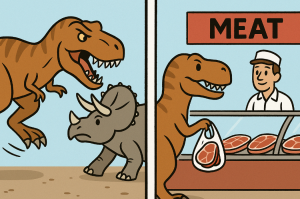
One in Five Patients Suffer, but Few Dentists See This Effect
Around the world, millions of people avoid the dentist. In fact, about 15% of adults suffer from dental anxiety, and 3% live with a full-blown dental phobia. On the surface, it may sound like a minor issue—simply a case of nerves before sitting in the dental chair. But new research from a German team reveals a startling truth: dental phobia doesn’t just harm your teeth. It can ripple out to damage relationships, mental health, and even life satisfaction itself.
So, what really happens when dental fear takes control?
When Fear Turns Into Avoidance
In the study, researchers compared 61 patients with severe dental phobia to 69 peers without anxiety. The difference was stark. Phobic patients had avoided dental care for an average of 11 years. That’s more than a decade of cavities spreading, gum disease worsening, and confidence quietly eroding.
By the time these patients finally sought treatment—often under general anesthesia—they had nearly twice as many decayed teeth as the control group. Over half showed severe gum disease across their entire mouth. Some had no filled teeth at all, because they had never stayed in the chair long enough for a dentist to repair the damage.
The dental toll was expected. But what surprised scientists was how deeply this fear seeped into daily life.
From Teeth to the Heart of Daily Life
The team didn’t stop at examining teeth and gums. They asked participants about life satisfaction across ten areas of life, from health and friendships to sexuality and finances.
Here’s what they found:
- Lower life satisfaction overall – People with dental phobia scored significantly lower than their peers.
- Shame as a powerful link – Many patients reported embarrassment about their teeth. They avoided smiling, laughing, or even speaking openly. This shame wasn’t just cosmetic—it was tied to dissatisfaction in friendships, sexual relationships, and self-image.
- Emotional strain – Dental phobia patients felt tenser, more irritable, and less able to relax. The psychological weight of avoidance proved heavier than the physical toothache.
The researchers concluded that dental phobia should no longer be seen as “just” a dental problem. It is a bio-psycho-social health disorder, blending body, mind, and society.
Why This Matters Beyond the Dentist’s Chair
Think of how much your smile shapes daily interactions. In Brazil, it’s customary to greet others with a wide smile; in Nigeria, showing bright teeth can signal warmth and trust. But what if shame holds your lips tight? The fear of being judged as “dirty” or “unkempt” creates isolation. A young man in Lagos might avoid applying for a customer-facing job. A woman in São Paulo might withdraw from dating. A father in Dresden might refuse family photos.
This isn’t vanity—it’s survival in a world where appearance, health, and confidence are deeply intertwined. The study found that dissatisfaction with one’s sexual life was strongly linked to dental shame. For many, the problem literally closed doors to intimacy.
The Science Behind the Discovery
So how did the researchers capture such a wide picture? They used a mix of clinical exams and validated questionnaires:
- Dental status (DMFT index): Counted decayed, missing, and filled teeth.
- Periodontal Screening Index (PSI): Checked gum health across six spots per tooth.
- Oral Health Impact Profile (OHIP): Measured how oral problems affect quality of life.
- Life Satisfaction Questionnaire (QLS): Assessed 10 life domains, from health to finances.
Statistical comparisons showed that differences weren’t just minor—they were large, with effect sizes that rival what you see in chronic illnesses like obesity or psoriasis.
The “aha” moment came when shame and life dissatisfaction consistently lined up with dental problems. Teeth weren’t just markers of health—they were triggers for identity, self-worth, and social belonging.
The Way Forward: From Fear to Healing
If dental phobia has such wide-reaching consequences, what can be done? The researchers emphasize two steps:
- Early recognition. Dentists should use quick screening tools—simple anxiety scales—to catch dental phobia before it spirals into years of avoidance.
- Compassionate treatment. A judgmental tone can deepen shame. Instead, building trust and offering behavioral therapy alongside dental care can break the cycle. Short-term therapy has been shown to reduce fear in just a few sessions.
It’s not just about fixing cavities. It’s about giving people back the ability to laugh without covering their mouth, to sit with friends without fear, and to feel whole again.
The Bigger Picture
This research also asks us to rethink how we view health. Dental phobia reminds us that the body, mind, and social world are inseparable. A cavity can become a crack in someone’s social life. A missing tooth can mean a missing chance at intimacy. And shame can be as corrosive as bacteria.
Around the globe, communities already face unequal access to dental care. When fear piles on top of financial and structural barriers, the result is a hidden epidemic. This study doesn’t just highlight the science—it’s a call to treat dental fear as a public health priority.
Let’s Explore Together
What do you think?
- Could early mental health support in dental clinics make a difference in your community?
- If you were on this research team, what’s the next question you’d want to explore—perhaps how cultural attitudes toward teeth shape fear?
- What everyday problem do you wish science could solve: fear of the dentist, or something even bigger?
Your smile isn’t just about teeth—it’s about life itself. And science is finally catching up to what patients with dental phobia have known all along.



